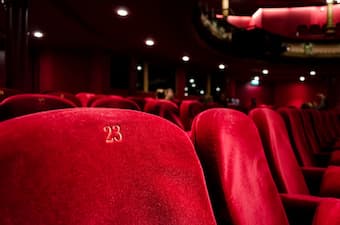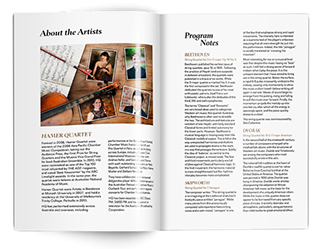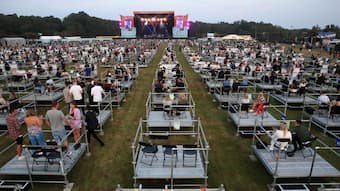 As concert life begins to return to something resembling “normal” after months of silence – the result of government restrictions in response to the coronavirus pandemic – venues, promoters and indeed the performers themselves can do a great deal to help audiences book tickets and get back to the live music and opera which they enjoy.
As concert life begins to return to something resembling “normal” after months of silence – the result of government restrictions in response to the coronavirus pandemic – venues, promoters and indeed the performers themselves can do a great deal to help audiences book tickets and get back to the live music and opera which they enjoy.
I’m both a concert-goer and also a publicist and it frustrates me when venues and artists make it difficult for audiences to access information about events and book tickets. It also makes my job as a publicist more frustrating when I don’t have the right information to share with potential audiences.
Now more than ever we want to encourage audiences back to venues so let’s make it easier for them.
Ludwig van Beethoven: Piano Concerto No. 4 in G Major, Op. 58 – III. Rondo: Vivace (Norie Takahashi, piano; Cologne Chamber Orchestra; Helmut Müller-Brühl, cond.)
Here are some thoughts on things which deter audiences and suggestions on how to optimise potential audience engagement and retention:

© tagart-studio.com
• Artist websites which do not list concerts in order of most recent. Who wants to scroll through someone else’s calendar to find the right date?
• Artist website listings which do not include live links to the venue or ticketing site
• Artist website listings which have broken or incorrect links to venue or ticketing site
• Venue or ticketing sites which omit crucial information such as ticket prices and concert start times; such information is only available if you click through to another page/site. (Studies show that people usually abandon a site if they can’t get the information they want within three clicks.)
• Badly-designed or difficult-to-navigate websites – especially those with stark white text on a harsh black background, the kind of design which fries the eyes……
• Over-long or egocentric descriptions of artist and programme. Ditch the self-indulgent self-promotion and instead focus on fulfilling your potential audience’s (“customers”) hopes and desires.
• Meaningless/boring programme biography notes recounting every teacher, competition and orchestra the soloist has played with. [See above!]
• Also, if you’re trying to increase your audiences you’re targeting the uninitiated who may have no context for your world and probably don’t care about your glowing biography. They just want to know what your concert will give them.
• Ditch outdated rules/concert etiquette and unnecessary or inaccessible jargon in programme notes. Instead use more casual language and aim for readability in both programme notes and marketing materials.
• Concert listings, programmes and even printed tickets should include information such as concert length (in minutes) or end time. These details are important for people who may have a train to catch post-concert.
• State whether there is an interval and how long it is.
• Consider adding a “newcomer’s guide” to your website, with information to make new concert-goers feel more comfortable (classical music and the etiquette surrounding it can still feel very intimidating and off-putting to some people)

© Cable News Network
• Venues and promoters should be mindful of the fact that not everyone has the facility or inclination to book online and to show ticket details on a smart phone (not everyone has a smart phone). Do not exclude those people who do not have access to this technology. Concert halls and other venues should be ready to allow alternative methods of proving Covid status for people who are not able to take advantage of the digital world.
• In the age of Covid, audiences need clear information about venue policies regarding measures to ensure audiences, staff and performers are kept safe (pre-attendance testing, temperature checks on site, vaccination status, mask wearing, social distancing etc.). If your audiences feel confident and comfortable about visiting your venue, they will come.
• Audiences need clear information about social spaces, refreshments, access to lavatories and other practicalities of the venue. This kind of information is even more important in the age of Covid when some people may not wish to congregate in crowded social spaces.
• Front of house staff should be welcoming and courteous.
• Engage with audiences through feedback forms, surveys, and other post-concert follow up to find out what they liked and disliked about the concert (this kind of contact can also make audiences feel “special” and “looked after”). Curiously, it’s the things they disliked which should inform the way you present future concerts. Put simply, you won’t gain or retain audiences unless you understand their anxieties around the concert experience.
• BUT don’t bombard audiences with post-concert marketing material encouraging them to subscribe, join a friends’ scheme, donate. Instead encourage them to come to more concerts with incentives – for example, discounts, free drinks, backstage tours, a chance to meet the artists……
• Artists who use social media have a powerful tool with which to engage with audiences before the event. This can create a connection between performer and audience before a single note has been played and also helps break down barriers and preconceptions about classical musicians being distant, elite or inaccessible.
These are not complicated suggestions – and many organisations and venues already have these types of “audience/customer relations” measures in place. By focusing more explicitly on the customer experience, artists, promoters and venues can better encourage and retain audiences and give them the best concert experience from the moment they decide to book tickets to when they leave the building, and beyond.
For more of the best in classical music, sign up to our E-Newsletter



